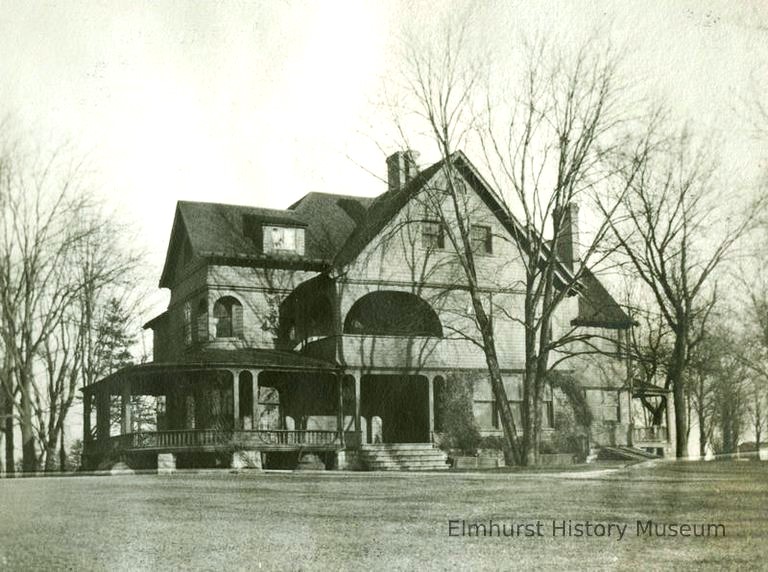For many of us—and especially today’s young people—the streets, shops, downtown and suburban life that make up Elmhurst don’t offer a hint as to what the landscape looked like in the 1800s.
But the Elmhurst History Museum staff has done their research, so they are offering to share what they’ve learned with visitors—specifically about what life was like when settlers here lived off the land—in a new exhibit called “Acre by Acre: Our Farming Heritage,” due to open March 14 and run through Aug. 10.
Sarah Cox, curator of exhibits, prefaced her description of the exhibit by pointing out that “We always plan our exhibits three to four years out; we plan very far in advance,” so the concept has been in the works for some time.
She said the idea behind the exhibit is to educate the public as to how municipalities like Elmhurst “weren’t always this bustling suburb,” adding, “We work with our local schools” to help shape the exhibits, in part, with school children in mind, to bring local history to life for them as well.
In the case of “Acre by Acre,” Cox continued, the exhibit will provide “general information about our roots here,” with the focus being a timeline of between 1850 and 1950.
However, she noted, the history of the land goes back further than that—way further—like 12,000 years!
An ongoing exhibit of the history of Elmhurst called “By All Accounts: The Story of Elmhurst,” she said, not only explains how Elmhurst has grown over time, but documents the early history of Native Americans who populated the area before the arrival of the first European settlers.
Relating back to the farming exhibit, “We had such rich, fertile soil,” Cox narrated, with four seasons that enabled the settlers to plant different types of crops; “continuing what the Native Americans were doing.”
“These pioneering families supported themselves through subsistence farming before transitioning to commercial farming, contributing to Illinois’ agricultural legacy,” the museum website points out.
In the 1850s, those families, Cox noted, came largely from Great Britain, Ireland and Germany, adding that, in fact, 18 percent of DuPage County was German.
She also shared that “between 1940 and 1970, 23 percent of Americans were living on and operating farms,” but by 1970, that number was down to 8 percent. “We’re hoping to add that element [of reality]; drive that message home.”
Cox said that after World War II, farmland began to give way to a suburban housing, as soldiers used the GI Bill to buy houses, “moving from the city to suburbs.”

The award-winning Elmhurst History Museum offers visitors a glimpse of its history in an ongoing exhibit, and in March will be featuring an exhibit with a focus on the history of farming in the area. Also pictured is the Case farmhouse. Curator of Exhibits Sarah Cox said the Case family name is a notable one in Elmhurst’s history. She credited that the Elmhurst Heritage Foundation helps support the museum’s exhibits, educational programming and special projects.
She said the exhibit will take visitors back in time to see what life was like during that 100-year period, such as what the chores were involved in farming, the tools that were used by the farmers and also—and just as importantly—the “movement of farm to table.”
That point, she said, is often lost on young people, who don’t always know, or think about, where their food comes from—whereas it was a way of life for the families who farmed the land in and around Elmhurst.
She said “Acre to Acre” will feature interactive elements for both adults and children, the latter of whom can even experience a play farmers market.
Cox said that by experiencing a farmers market, for instance, “We want children to go out and support their local farms and farmers.”
Simply put, Cox summed up, the aim of the exhibit is “to tell the [stories] of the families that were here.”
Additionally, visitors can see an exhibit called “Snapshots: Elmhurst Now and Then” that will be on display from Jan. 17 through Feb. 23, that is self-explanatory, and also shows, in photographs, how Elmhurst has evolved and grown over time.
The Elmhurst History Museum is located at 120 E. Park Ave. Call 630-833-1457 or visit Elmhursthistory.org and social media for more information on hours and exhibits, where there will be upcoming information on future field trips and “portable” programs for students.

